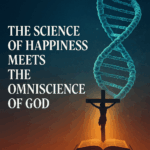“Satisfying or Not Satisfying” – Ecclesiastes 5:10-20
Introduction: Three men with the “most toys”
You have probably heard that life-motto “He who dies with the most toys wins.” Let me tell you stories of three men with that “most toys” attitude.
The first man, Jack, served valiantly in World War II. When he returned home, he became a business man. He adopted that “most toys” slogan to the point where if someone else in town had a bigger car than he did, he would head down to the dealer, and get a newer and better one. It all ended quite sadly. One day, he left the ignition on while opening the trunk and the car slipped from park to reverse and his life was over. The very possession that characterized his life took his life.
The second man just completed the harvest of his crops, and it was a bumper crop… so much so that he didn’t have anywhere to store it all. This man didn’t give thanks to God – as we did last Sunday – but he determined to build bigger barns and bins to store all of his grain and stuff. He said to himself, “Self, you’ve got it made! This wealth will last for years… eat, drink, and be merry!” But like WWII Jack, this fictional man in a story that Jesus told, died that very night.
The third man was the man we heard about in the Gospel reading last Sunday, whose story was concluded in today’s Gospel reading. He was a rich man who claimed he had kept all the love-your-neighbour Commandments since he was just a kid. Jesus looked at him and loved him and realized that he loved his money more than God. He said, “Give to the poor and you will have treasure in heaven. Then follow me.” But the rich man couldn’t/wouldn’t part with his toys, and that’s why in today’s Gospel reading Jesus said, “It is difficult for the rich to enter the Kingdom of God.”
I’m not going to explain Jesus’ words and comments about the rich man any more because I will deal with the similar subject matter addressed in our Old Testament reading from Ecclesiastes 5.
1. Ecclesiastes: the problem with money
a. Vanity/breath
The theme of the Bible Book of Ecclesiastes could be summarized with the three-word saying, “All is vanity.” Chapter 5, which we heard from today, could be summarized with the four-word saying, “The vanity of wealth.” The first verse we read hits the nail on the head, “He who loves money will not be satisfied with money, nor he who loves wealth with his income – this is vanity.”
Now, vanity generally refers to arrogance, pride, self-love, conceit. Vanity can be pictured as someone looking – well just above the vanity in the bathroom to the mirror… looking, admiring, making sure that every aspect of his or her appearance is perfect, and marveling when it is. It’s kind of like Fonz in the old Happy Days TV show. He would look in the mirror to comb his hair, but realize it was already perfect – no combing necessary!! That’s vanity!
The Hebrew word for vanity – which appears some 35 times in the Book of Ecclesiastes – is a rich term, and can mean ‘breath’ which indicates how fleeting and insignificant it is. That’s why the theme of the Book is that earthly things have no real meaning apart from God. In this chapter, wealth is not just apart from God, but is loved instead of God, and therefore is not truly satisfying. All is vanity, wealth is vanity… just a breath.
b. Love of money = idolatry
That really tells us something else. “He who loves money will not be satisfied with it” because that gold and silver and money has been exchanged for God as the object of one’s love and devotion and worship. This is nothing less than idolatry, and it leads one away from God, away from faith.
Now just to be clear here, money isn’t evil in and of itself. One of the most misquoted verses in the Bible is 1 Timothy 6:10 which is wrongly cited as “money is the root of all evil.” In fact, what Paul wrote is that “the love of money is the root of all evil.” The true danger in that love of money is found in the last half of that verse, which we rarely remember or read. It says that because of that craving for money, “some have wandered away from the faith.” That’s the trouble with loving money – it leads us away from God, it leads us away from trusting in God, and it becomes a god itself, and that’s a First Commandment issue – “You shall have no other gods, and we are to fear, love and trust in God above all things.” How you answer the question, “Who or what is your god?” makes all the difference in whether life even has meaning.
The rich man in Mark 10 quite obviously loved his money and turned it into his god. That’s why Jesus would say that “it’s easier for a camel to go through the eye of a needle than for a rich person to enter the kingdom of God.” Love of money = idolatry.
c. Doesn’t last forever / can’t take it with you
Another problem with money is that it doesn’t last forever. Listen to verses 13 and 14 again: “There is a grievous evil… Riches were kept by their owner to his hurt, and those riches were lost in a bad venture.” Isn’t that the truth? If you have enough money, and you’re looking to invest it and make more, and one of those “too good to be true” ventures presents itself and you get drawn in, then you soon learn that it WAS too good to be true. That 10% or 12% return promise fizzled out, and your riches were lost in a bad venture.
And if you get old enough, if you last long enough… well, your money might not… what with medications for this, that and everything, and with medical procedures, and with the exorbitant cost of living in a seniors residence or a care home… no your money might not last. And even if it did, you can’t take it with you. I think the New International Version of v. 15 is more familiar to us: “Naked a man comes from his mother’s womb, and as he comes, so he departs. He takes nothing from his labour that he can carry in his hand.”
One man thought he could take it with him, wherever he thought he was going after he died. So, he instructed his children to liquidate his estate after he died, turn it into gold bullion bars, put it in a brief case, place the brief case in his casket and bury that gold with him. OK, at this point, let me tell you that this isn’t a truly Christian story because, despite his apparent trust in his money more than God, he ended up at the doors of heaven. He was greeted by an angel or two and he insisted that he bring the brief case into heaven with him. They asked him what was in the brief case. When he showed them the bars of gold, the one angel snickered and said to the other, “Why would he want to bring pavement here?” [You know… the streets of gold!]
The truth is, “He who dies with the most toys… still dies!” And when he dies, someone else gets his toys, or perhaps by the time he dies they have lost their value… tsk… tsk.
d. Ultimately not satisfying
One last problem with money is that ultimately it does not satisfy. Verse 17 explains that “all his days he eats in darkness in much vexation and sickness and anger.” There are some things that money can’t buy… oh, and the ad on TV finishes the sentence with “for everything else, there’s Mastercard.” So, what can’t money buy?
Health – you might be the richest person on the planet, but when the doctor’s diagnosis is the c-word, your gobs of money can’t undo it or fix it.
Peace – when you’ve said something that you wish you wouldn’t have, and you’ve broken your relationship with one of your kids, and it torments you and keeps you from sleeping, then trying to bribe your child back into a civil relationship – forget about a loving relationship – it doesn’t work, and you don’t have peace.
Reputation – when you’ve done something that has ruined your reputation and good standing at work, money can’t get that reputation back.
Love – when you’re trying to impress the prettiest girl in high school with your fast car or with invitations to a fancy restaurant, but she just isn’t into you, well, you learn what the Beatles sang about in their 1964 hit single “Money Can’t Buy Me Love,” and that was really only a re-statement of the Biblical truth in Songs of Songs 8:7 – “If one were to give all the wealth of his house for love, it would be utterly scorned.”
The bottom line… money can’t get you the most important things in life, so it is ultimately not satisfying.
2. What is satisfying?
a. Acknowledging that there is a real God
So what is satisfying? First and foremost, what is satisfying is acknowledging that there is a real God, and He’s not money! We don’t hear that acknowledgement at all in Ecclesiastes 5, but our Epistle reading from Hebrews 4 helps us out. It talks about God creating the world, and calling us to rest from our toils on the seventh day just as He established the pattern for rest. It talks about God’s throne of grace that we can approach in a posture of prayer. It talks about our great high priest, Jesus, who was sinless though tempted, and who brings us mercy and grace in our time of need.
What is satisfying is loving God rather than ignoring Him, and keeping Him at arm’s length in our lives. What is satisfying is loving the God who loved us first, and who gave His Son into death so that we might be forgiven and have treasure in heaven. What is satisfying is putting everything in its proper place – money, possessions, work, family, recreation, entertainment, reading, sports, education – all those things in their proper place under God. What is satisfying is following Jesus, for He is goodness, and truth, and love, and life.
b. Peace/contentment in what we have – gifts from God
Second, and for this we do turn back to Ecclesiastes, what is satisfying is to find peace and contentment in what we have, and to consider them as gifts from God. Listen again to how Ecclesiastes puts it: “What I have seen to be good and fitting is to eat and drink and find enjoyment in all the toil with which one toils under the sun the few days of his life that God has given him, for this is his lot. Everyone also to whom God has given wealth and possessions and power to enjoy them, and to accept his lot and rejoice in his toil – this is the gift of God.”
Do you hear that? Do you get that? The wealth that God has given, the possessions that God has given, the toil that God has given, the lot in life that God has given – these are good things, things to enjoy… but first of all to recognize as things that God has given, and second not things to make into your God. That “eat, drink and be merry” motto of the man who built bigger barns – that wasn’t evil or ungodly… the problem was that he didn’t acknowledge those things as gifts from God, and he didn’t offer thanks to God. Whatever your lot in life – whether you’re single, married, or widowed, whether you’re rich, middle class, or barely making ends meet, whether you’re young, empty nesters, or a senior senior – whatever your lot in life, recognize it as the gift of God for you right now, and be content. Things will likely still change in life, and you can deal with those changes when they come, but be content where you are. If you want a motto for life, then Paul’s words in Philippians 4 work for everybody: “I have learned the secret of being content in any and every situation, whether well fed or hungry, whether living in plenty or in want. I can do everything through Him who gives me strength.”
As a young adult, Martin Luther took a monk’s vow of poverty, but ended up with a wife and family and a very large home, where university students boarded, and where professors, friends and relatives, local folks and admirers came to hear his theological wisdom, and to stay, and to eat. Somehow, Luther’s wife Katie always fed them. Luther considered Katie to be “more precious than the kingdom of France and the riches of Venice.” He slept sweetly at night, for he once wrote, “I don’t worry about debts because when Katie pays one another comes.” Like St. Paul, Luther knew that whatever he had – a lot or a little – was a gift of God, and that whatever else he had, he always truly had everything good, because he had Christ, the one who had reconciled him to God for all eternity.
c. Using those gifts to serve others (like Jesus served us)
A third thing that is satisfying is using those God-given gifts to serve others. This was the downfall of the rich young man in Mark 10. He had much, but he kept it for himself. In contrast, Jesus once said in a parable, “To whom much is given, much is required.” In other words, the more you have – whether it’s money, or gifts, or time – the more opportunity you have to bless other people. And if you’ve done that – and I’m sure you all have in one way or another – if you’ve done that, you know what deep satisfaction that gives you in your heart. Serving others with who we are and what we have been given is nothing less than following Jesus, since He was the one who came not to be served but to serve others and to give His life as a ransom for all, to give His life as a ransom for YOU!
d. Mission Impossible is possible with God!
Let me end with one last comment to correctly understand and interpret Jesus’ statement about it being hard for the rich to enter the kingdom of God, and to help us put the vanity of wealth into perspective.
Many of you remember the old TV program Mission: Impossible, and some of you have become acquainted with it through the more recent movie versions starring Tom Cruise. Basically, the television program revolved around an agent, Jim Phelps, receiving dangerous and secret government assignments. The tagline was a tape recording at the beginning of each show that said, “Your mission, Mr. Phelps, should you decide to accept it, is . . .” And then after relaying the message, the tape would self-destruct “in five seconds.” The name of the show came, I suppose, because these assignments appeared impossible. You know… Mission: Very Difficult just doesn’t have the same zing as Mission: Impossible.
Entering the kingdom of God is Mission: Difficult for the best of us. We have to give up all of our own efforts to please and appease God, and rely instead completely on Jesus’ suffering and death for us. Believing that isn’t easy!
For the rich, entering the kingdom of God is Mission: Very Difficult. That’s what Jesus says after the rich man walked away from Jesus: “How difficult it will be for those who have wealth to enter the kingdom of God!” This surprises the disciples. Like other Jews, they regarded wealth as a sign of God’s blessing and an indicator of one’s relationship with God. Riches, rather than always being a sign of God’s favor, can actually get in the way of one’s trust in God, can get in the way of inheriting eternal life, can get in the way of the kingdom of God.
The disciples understood and asked the logical question: “Who then can be saved?” with the implication that that is truly Mission: Impossible. But Jesus’ response was so encouraging… maybe for you, too. “With God all things are possible.” That is, even saving a rich man is possible. And that’s good news, because whether we acknowledge it or not, many of us are monetarily rich. But the richness of faith in Jesus for our salvation outweighs and undoes the potential danger of loving our earthly riches. By God’s grace, through Jesus, even the rich can go to heaven.
To wrap things up… true meaning and peace and satisfaction is found in knowing the true God, and His Son, and His grace, and His eternal gift; true meaning and peace and satisfaction is found in the contentment that all that we have are gifts from God; true meaning and peace and satisfaction is found in serving others as Christ served us; true meaning and peace and satisfaction is found in the safety net of God’s grace – that going to heaven is possible for EVERYONE… thanks to Jesus! Amen.








